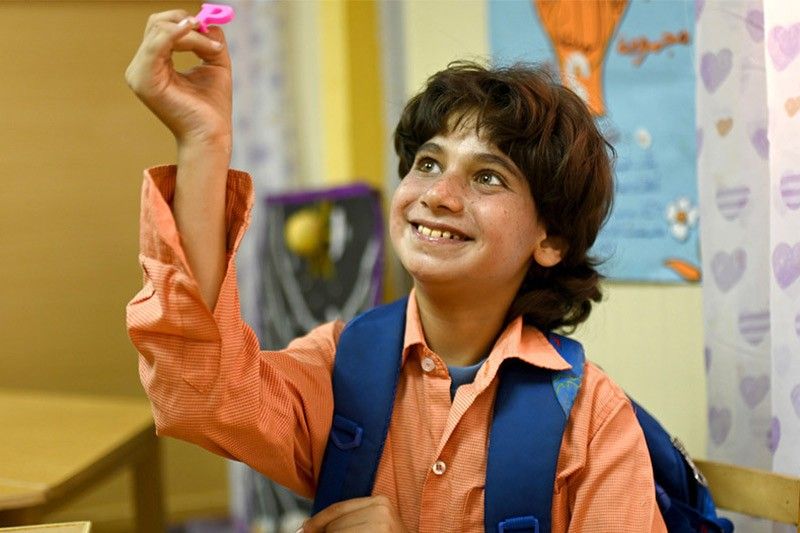How to help kids with Autism cope with quarantine

MANILA, Philippines — Navigating daily life during the novel coronavirus disease 2019 (COVID-19) pandemic is a struggle in itself, as the world grapples with a virus it is still trying to understand and respond properly to.
A magnifying glass held over our respective homes only reveals the brewing chaos left by our inability to plan ahead, unable to determine what’s to come in the following weeks or months.
How then do parents of children diagnosed with Autism Spectrum Disorder even begin to explain the multi-faceted problems of COVID-19, which has killed tens of thousands and debilitated entire countries?
The good news, health experts said, is that preventive measures can be taught to children with autism so that they can protect themselves from infection.
These kids, however, need to be armed with the right materials and guidance from their parents, with considerations on how their needs will be met during the global health crisis.
Where to start
The appropriate starting point is understanding how to deliver the news to your child and preempting any questions to avoid scaring them.
SPED-IE consultant (Special Education-Inclusive Education) and behavior specialist Mayumi Gonzales said that the immediate and more apparent threat posed by COVID-19 to kids with autism is not so much its potential lethality, but rather the unprecedented changes it made to our daily lives.
“For now, what happens is that they may not really know about or understand what is happening... The issue right now is not really about the virus. I can get it, it could be fatal, it affects the entire nation. They might not understand it that way,” Gonzales said during an April 2 webinar for World Autism Awareness Day, organized by Araneta City.
“It's more of 'Why am I not going to school?' or 'Why am I not into therapy now?' 'Why can't I go out to buy...to go to the grocery or to my favorite fast-food chain?'"
The United Nations Children's Fund or UNICEF similarly said that youth living with ASD may "exhibit strong resistance to change" as they are placed in unmarked territory.
"A child with autism should be taught how to behave during the epidemic before they hear such information from other sources... Give the child with autism some time to ‘process’ the information you told them. Some children will need to roleplay and constantly ask questions in order to eliminate the stress caused by this new situation,” UNICEF said in its website.
Gonzales advised parents that the key to getting through to their children is understanding their learning characteristics.
She said children with autism are concrete learners, marked by receptiveness to observable information like what they can see, touch, or feel.
Meanwhile, obstacles to education include lack of motivation, language and communication challenges, inability to generalize, poor attention, uneven skills and social difficulties.
Relaying information about COVID-19, the SPED-IE consultant said, then means overcoming these hurdles and maximizing the children’s strengths.
How to act
“It is proven by a lot of studies that the best way to communicate with them is to make it visual. So because they are visual learners, they think in pictures. The reason for this is because the meanings are more concrete, they are more precise,” Gonzales said.
This makes visual aides and role-playing particularly effective.
“Instead of just saying... 'Ano ha, social distancing. Diyan ka lang, dito ako ha.' Instead of just saying it by words, you can actually enact it because it's like simulating the entire scenario. At your dinner table, for example, you can go and say 'Okay, you sit here. This is your chair. This is my chair. We are going to eat dinner'.”
“Social stories” are also recommended for their friendly approach to an otherwise overwhelming topic.
“It could be like a bedtime story or it could be just something of a point of discussion for you and your child. So this one can help you go and explain to them what COVID-19 is all about at their level, the level that they can understand,” Gonzales explained.
Another example of a social story provided by UNICEF can be found here.
Through these practical methods, global experts agree that children with autism can learn preventive measures like handwashing and social distancing during the pandemic.
What to look out for
Since the respective coronavirus outbreaks and government responses vary per country, parents should gun for the long-term, which in turn means helping their kids adjust for the meantime.
“Now, it's not enough to go and tell them what COVID-19 is. But I think what is more important is to support them on what they can do at this time,” the behavior specialist said.
“When we say ‘routine,’ it is something that you do every single day. The irony is that change is the only permanent thing in the world.”
To remedy the disruption in their routines, which are said to provide those with autism comfort, the solution is to create a new flexible schedule that allows time for daily living skills, communication skills and play.
Rather than strict hourly tasks, activities can be arranged by morning, afternoon and evening with schedules plotted in accordance to each family's needs.
“It is also important to maintain something that they did before the lockdown like they wake up in the morning roughly around seven a.m., let them still wake up at that time.”
Parents can watch out for changes in their kids' behavior, sleep, eating habits and engagement in their daily living activities.
If any of the above are observed, some calming and mindfulness skills suggested include breathing exercises, calming music, yoga poses, stretching, walking and other physical exercises.




















